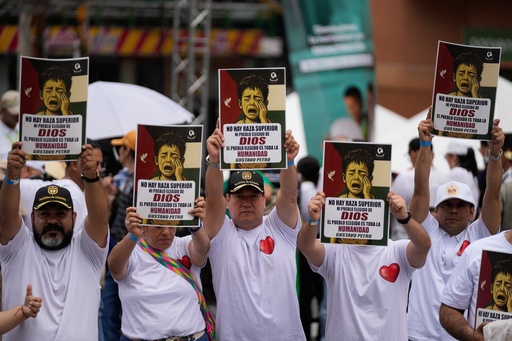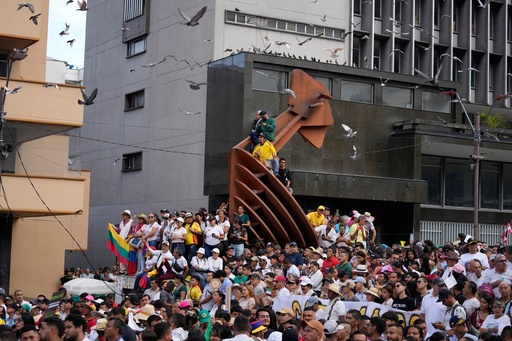US escalates criticism of Colombia's president at the UN, calls for action against drug trafficking
News > National News

Audio By Carbonatix
3:56 PM on Friday, October 3
By EDITH M. LEDERER
UNITED NATIONS (AP) — The United States accused Colombia’s president on Friday of undermining progress to lasting peace and urged its government to make combating violence and drug trafficking by “narco-terrorist groups” a priority.
U.S. Ambassador Mike Waltz told a U.N. Security Council meeting that President Gustavo Petro’s policies in Colombia and around the world “are frankly irresponsible failures” that have led the country to greater instability and violence.
Relations between the United States and Colombia reached a new low last week after Petro, a leftist, participated in a pro-Palestinian protest during the annual gathering of world leaders at the U.N. General Assembly. The U.S. State Department revoked Petro’s visa after the protest.
Petro has angered senior U.S. officials by denying American extradition requests as well as criticizing the Trump administration’s immigration crackdown and its efforts to combat drug trafficking in neighboring Venezuela.
The Security Council meeting took place as the Trump administration announced its fourth deadly strike in the Caribbean on boats it says were trafficking narcotics. Petro accused the U.S. of committing “murder" and said there were no “narco-terrorists” on the boats just “poor Caribbean youth.”
Waltz strongly disagreed.
“In recent months, Colombia has been rocked by attacks by narco-terrorist groups on Colombian security forces and civilians,” the U.S. ambassador said. “The violence and drug trafficking perpetrated by these arms groups, if left unchecked, can spread and jeopardize the safety of Colombians, the safety of everyone in the region, and certainly of Americans."
Waltz said the United States urges Colombia’s government to prioritize addressing this threat, adding that the administration is deeply concerned about the prospect of peace negotiations that could give these groups impunity.
The Security Council has been monitoring a 2016 peace accord between the government and what was then the largest rebel group, the Revolutionary Armed Forces of Colombia, or FARC, at the government’s request. The agreement ended more than 50 years of war in which over 220,000 people died and nearly 6 million people were displaced.
Waltz warned the council that the Trump administration, which has veto-power on renewing the mandate of the U.N. political mission, is examining whether it merits continued support.
“Unfortunately, over time, the mission’s mandate has broadened to reflect excessive political priorities, including transnational justice and supporting minority ethnic groups,” Waltz said.
Colombia’s U.N. Ambassador Leonor Zalabata Torres made a strong appeal to the Security Council to renew the mandate, which expires on Oct. 31.
Zalabata Torres, describing herself as an Indigenous woman, said the Petro government is committed to the 2016 peace agreement, especially the chapter recognizing Indigenous peoples and those of African descent “as fundamental pillars for building a complete stable and lasting peace."
She said true reconciliation will only come when Colombia’s cultural and ethnic diversity is recognized and there is justice.
U.N. Assistant Secretary-General Miroslav Jenča, who visited Colombia in September, told the council on Friday that consolidating peace after decades of conflict “is a complex work-in-progress" and the country is entering a “delicate period.”
He pointed to presidential and legislative elections in May 2026, which he said are increasing tensions. Petro is barred from running for a second term. Jenča recently has been appointed head of the U.N. mission in Bogota, a position he'll take up later this month.









